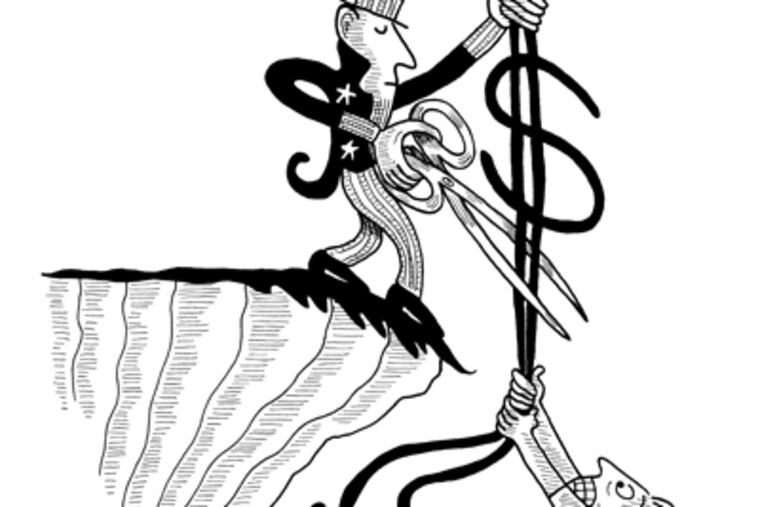Inquirer Editorial: Don't end jobless benefits
Labor activists on Thursday distributed toys to the children of unemployed Philadelphians in Center City. But the gift these families really need - short of returning to work - is an extension of federal safety-net benefits that are critical to the long-term jobless.

Labor activists on Thursday distributed toys to the children of unemployed Philadelphians in Center City. But the gift these families really need - short of returning to work - is an extension of federal safety-net benefits that are critical to the long-term jobless.
Unfortunately, along with more than 2 million other Americans, these city residents actively seeking work are facing the pending shutdown of the federal emergency unemployment program.
Launched amid the economic crisis, this program has been a lifeline that more than doubles the number of weeks for jobless payments beyond the individual states' standard 26-week plans.
Even though the jobless program is far from the largest big-ticket item in play during the ongoing talks in Washington to steer clear of the so-called fiscal cliff, its renewal would be vital to this region.
Both Pennyslvania and New Jersey would be among the hardest hit states should the extended unemployment benefits end as scheduled on Dec. 29.
Nearly 240,000 long-term jobless individuals across both states, along with thousands of others in neighboring Delaware, would see the end of an additional 37 weeks of benefits if Congress and President Obama cannot agree on an extension.
For a city still facing double-digit unemployment, and the nation with nearly 8 percent out of work, this isn't the moment to trim aid for people who have felt the brunt of the past recession.
Labor experts view the additional weeks' benefits as critical in a job market crippled by the poor economy. It's not unusual for job searches to take nearly a year on average. Beyond keeping millions of people out of poverty - many of them children - the extra unemployment checks have enabled laid-off workers to take advantage of retraining that can equip them to return to the workforce.'
With a $30 billion price tag through next year, the reauthorization of jobless benefits still has Obama and Republican congressional leaders divided. House Speaker John Boehner's counter-offer to the president in fiscal-cliff negotiations this week dropped the program, one of numerous spending reductions proposed as a tradeoff for his agreement to let tax rates rise on the nation's wealthiest.
In most states, including Pennsylvania, there are few high-earners who will feel the pinch of Obama's proposed tax hike. But the ranks of those relying on the federal jobless checks are substantial. That's why, as congressional Democrats have demanded, any settlement of the fiscal-cliff talks must include another extension of unemployment insurance.
The president, too, needs to remain firm in his resolve to reach a deal that looks out for those workers for whom the recession has been the toughest - the ones who lost their jobs.
The lawmakers need to remember, too, that even with an agreement on spending cuts and tax increases, the nation's jobless would be the first to feel the effects of any federal belt-tightening. That's all the more reason for Washington to have their backs, at least for one more year.